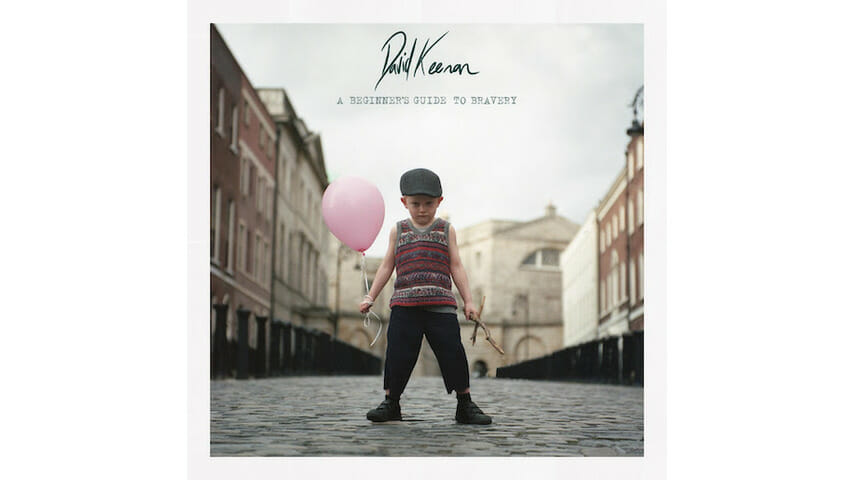David Keenan Lacks Originality on A Beginner’s Guide to Bravery
The Irish singer-songwriter’s debut album fails to showcase much else other than his contrived lyrics
Music Reviews David Keenan
Despite the plethora of music emanating from Ireland’s rocky shores, the singer/songwriter genre (if it can be dubbed as such) is most closely associated with the Emerald Isle. The image of a single balladeer, sitting on a stool in a dingy pub and singing mournfully, may as well be next to every banner ad beckoning tourists to visit the majestic Cliffs of Moher. In Dublin, many bars that feature these romanticized artists tend to be tourist attractions in the overcrowded (and usually vomit-splattered) Temple Bar area, filled with visitors marvelling at the manufactured authenticity. These acts rotate through a tired set of songs that include “Galway Girl” and “Wagon Wheel,” getting a well-earned paycheck but not feeding the soul much at all.
David Keenan, Ireland’s latest export from the border town of Dundalk, County Louth (also home to avant-garde pop artist Æ Mak and ascending rockers Just Mustard), has a roster of his own songs, but he still invokes this antiquated and, frankly, outdated version of what an Irish artist looks like (quite literally too: He dresses like an extra in below-deck Titanic scenes). There are plenty of inspiring artists in Ireland right now—Junior Brother, SOAK, etc.—who fall under the singer/songwriter umbrella, but put their own original twist on the stereotypical image. Junior Brother takes a cynical look at Irish culture, but there is unmistakable heart underpinning his alt-folk sound. SOAK is marked by a singular lushness that fills the landscapes of her tender, lovelorn songs.
Keenan, however, seems content to reference Samuel Beckett and conjure up images of old timey Ireland, with little inner examination. He strings together phrases into a word soup that is meant to seem like poetry, but really just sounds like something a particularly pretentious Tumblr user would dream up. While well-produced at Hellfire Studios, the skilled-yet-dull instrumentation and contrived lyrics make for a disappointing debut.
Opener “James Dean” sets the tone for the album, with Keenan singing overwrought lines about Samuel Beckett’s 1938 brush with death (an intriguing story, to be sure) and imagining what James Dean’s life might look like had he survived that fatal car crash. Tortured doesn’t even begin to cover the lyrics here: Keenan’s over-enunciation and melodramatic delivery gives the impression that he’s an especially ambitious understudy from an off-Broadway production of Once.
Over a storm of feedback and strings, “Altar Wine” provides a bright spot. Keenan describes the trauma sewn by the Catholic Church in his homeland, his fervent delivery matching the song’s dark atmosphere: “There was once a man who loved me / He was older he left this scar and a book about an angel who made her way back home to God / I still think about him sometimes, running my finger up its spine / May he fall into a well, he left me old before my time.” “Love in a Snug” likewise serves as another shining moment, particularly the evocative imagery used to describe the bar he wanders into: “Hear the clicking of boot heels on barstools / See the bald chalkless tips of the pool cues.”
But those are the exceptions. For most of the A Beginner’s Guide to Bravery, Keenan tries to equate his work with brilliance by referencing famous artists or affecting his speech in the hopes that doing so will lend his words more significance. Spoiler alert: It doesn’t. Most of the songs are forgettable melody-wise, usually crescendoing to some combination of percussion-piano-strings before abating again. It seems a waste for the backing band, who are certainly talented, but play second fiddle to Keenan’s egoistic vision. He seems intent on achieving personal greatness, rather than creating art that is great in and of itself, which is why his lyrics often ring hollow. “Occupy the city with original ideas,” Keenan and his compatriots chant over the end of the final track “Subliminal Dublinia.” If only he heeded his own words.